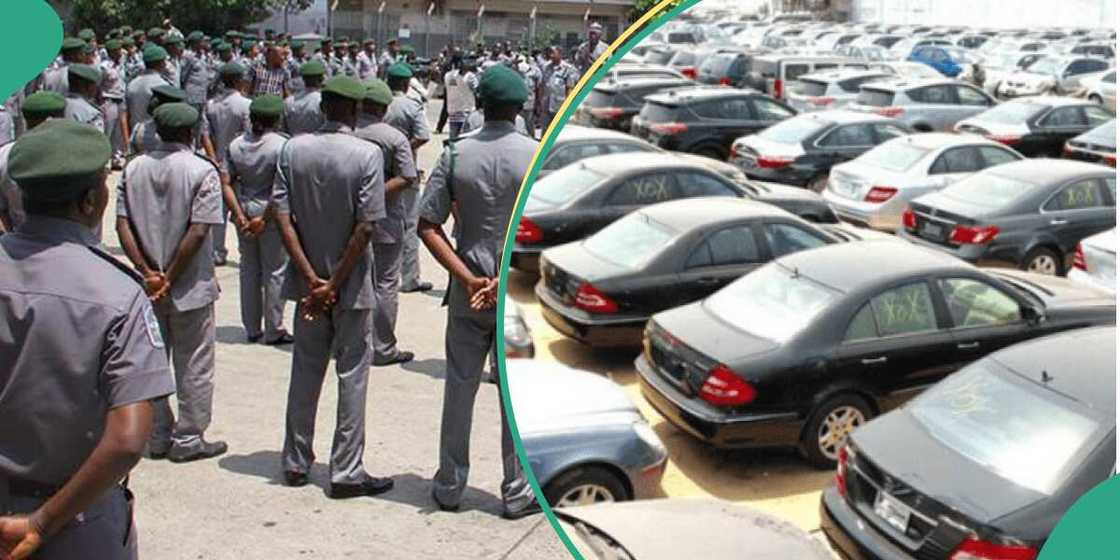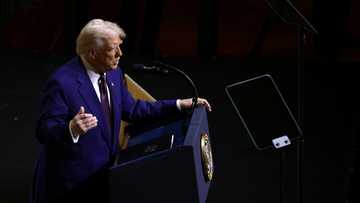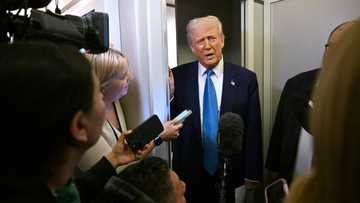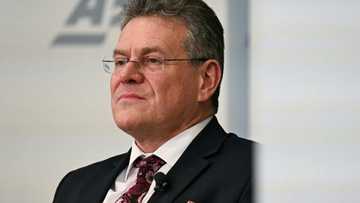Imported Vehicle Prices to Change as Donald Trump Moves to Raise Tariffs
- Nigerian clearing agents have said that vehicle importers may begin to pay more as Donald Trump plans to raise tariffs on vehicles
- This comes as the US President had threatened to impose a 25% tax on US cars as early as April 2, 2025
- Nigerian importers have said if the threat is realised vehicle importers and importation would be severely affected
CHECK OUT: Education is Your Right! Don’t Let Social Norms Hold You Back. Learn Online with LEGIT. Enroll Now!
Legit.ng’s Pascal Oparada has reported on tech, energy, stocks, investment and the economy for over a decade.
Clearing agents have disclosed that Nigerian vehicle importers may be paying more due to Donald Trump’s plans to impose auto tariffs of around 25% and similar duties on semiconductors and pharmaceutical imports.
Reports disclosed recently that this is the latest in a wave of measures threatening to affect international trade.

Source: UGC
Trump to impose taxes on imported cars
Trump had said taxes on cars would come as soon as April 2, 2025, after his cabinet members were due to provide feedback on outlining options for a range of import duties.
Trump had condemned what he termed the unfair treatment of US auto exports in foreign markets.
Reuters reports that the EU collects about 10% duty on vehicle imports, four times more than the US passenger car tariff rate of 2.5%.
The country collects about 25% tariff on pickup trucks from countries other than Mexico and Canada, making the vehicle highly valuable for US automakers.
Nigerian importers brace up for tariff hikes
The head of the Department of Shipping and Terminals of the National Association of Government Approved Freight Forwarders, Nnadi Ugochukwu, said Trump’s decision would affect vehicle imports into Nigeria, a Punch report said.
According to Ugochukwu, most of the cars brought into Nigeria are from the US and if the purchase prices rise, it will affect the Nigerian market.
Per the Reuters report, the European Trade Chief, Maros Sefcovic, would meet with US authorities in Washington to discuss the various tariffs Trump threatened to impose.
Sefcovic said the bloc could avoid reciprocal tariffs he proposed last week as Trump repeated his assertion that the EU had already shown signs that it would reduce tariffs on US cars to the US rate.
He disclosed he would pressure EU officials to raise US imports and other products.
Additionally, Trump said that tariffs on pharmaceutical and semiconductor chips would begin at 25% or higher in the year.

Source: Facebook
FG Makes Moves on Car Importation
The development comes as the Nigeria Automotive Design and Development Council (NADDC) has announced the federal government’s plan to regulate car importation and dealership operations across Nigeria.
Joseph Osanipin, the director-general of NADDC, disclosed this while speaking at a stakeholder engagement with members and executives of the Association of Motor Dealers of Nigeria (AMDON) titled ‘Import of Used Cars and Dealership Regulation in Nigeria'.
According to Osanipin, there was a need for stricter regulations on the importation and sale of used cars due to the influx of accident-prone and condemned vehicles, many of which enter the country through smuggling routes.
The NADDC boss also underscored the need for collaboration among industry stakeholders, warning that without cooperation from dealers, regulatory efforts could be undermined, Punch reports.
FG launches N20bn car loan scheme
Legit.ng earlier reported that the Nigerian government launched an N20 billion consumer credit scheme to grow the demand for locally assembled vehicles.
The scheme, led by the Nigerian Credit Corporation (CREDITCORP), hopes to restrict consumer interest rates to a single digit.
The managing director of CREDITCORP, Uzoma Nwagba, explained that the funds aim to eliminate the barriers consumers face when buying vehicles on credit.
Proofread by Kola Muhammed, journalist and copyeditor at Legit.ng
PAY ATTENTION: Сheck out news that is picked exactly for YOU ➡️ find the “Recommended for you” block on the home page and enjoy!
Source: Legit.ng





